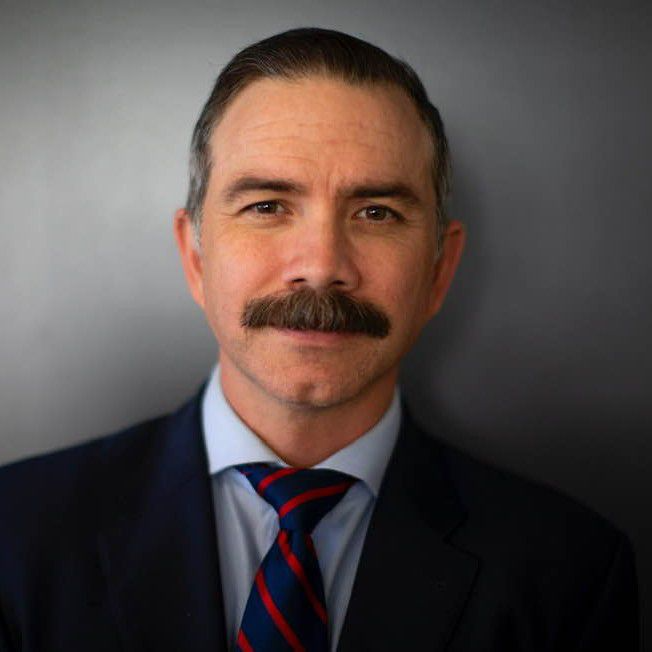As Portland leaders weigh whether to replace the city’s outright ban on daytime camping with a scaled-back version, one city commissioner — and mayoral hopeful — is pitching a potentially more punitive alternative.
Rene Gonzalez has crafted a measure that would immediately ban homeless camping citywide and substantially increase fines or jail time for violations, should the U.S. Supreme Court and Oregon Legislature do away with current limits on local enforcement.
The proposal would also allow Portland’s mayor or a mayoral designee to set the rules governing camping on public property, effectively making such decisions an executive power instead of the purview of the City Council, according to a copy obtained by The Oregonian/OregonLive.
And it would keep the current punishment for camping in a place or manner barred by the city at up to a month in jail, not reduce it to a single week, as Mayor Ted Wheeler and other city council members propose.
City Attorney Robert Taylor shared a draft copy of Gonzalez’s proposal with council offices Tuesday afternoon, several hours after Portland leaders agreed to delay a hearing on changes to the daytime camping ban scheduled for Thursday.
In the statement Wednesday, Gonzalez said he favors making camping regulation an executive matter because “it is flexible and can adjust as a fluid legal environment evolves,” adding that neighboring Gresham already has a similar model.
Gonzalez, who won a seat on the Portland City Council in 2022 with an unwavering law-and-order focus, said he would like to see the city pull no punches on a camping crackdown if current legal rulings and state law were to change.
“Our office is committed to aggressively protecting Portland from the crime, fire hazards, and debilitating drug culture in the encampments that are preying on our most vulnerable residents and harming our community,” he said.
Commissioner Carmen Rubio, who is also running for mayor, slammed Gonzalez’s aggressive tack as “inhumane” and likely to face lawsuits.
“It criminalizes homelessness – without an opportunity to choose a path toward treatment – and that’s not what Portlanders want,” Rubio said. “Portlanders want accountability with compassion – in the form of real addiction and mental health treatment choices.”
At Wheeler’s urging, the council had planned to hold a public hearing and eventual vote on a proposal to allow camping at all hours of the day but forbid doing so in certain locations, lighting fires at campsites or storing possessions over a wide area.
The mayor hatched that proposal, which Rubio has endorsed, after a judge put the city’s current daytime ban on hold while it is under legal challenge. Earlier this month, Wheeler told OPB he believed that the full five-member City Council — and not the mayor or a designee — should craft and approve any camping prohibition policy.
Any homeless camping restriction measure would require at least three votes to pass.
Commissioner Dan Ryan has expressed interest in supporting the proposal floated by Gonzalez, a frequent ally of his on City Council, according to his office. Commissioner Mingus Mapps, another mayoral hopeful, is still weighing both options, spokesperson Andrew Baker said.
Gresham officials are scheduled to brief Portland council members and staff Friday on how their city regulates public camping, according to Gonzalez’s office.
State law, passed by majority Democrats, requires cities to “ensure the most humane treatment for removal of homeless individuals from camping sites on public property,” including providing 72 hours of advance notice. It also requires that any rules limiting the time, manner or place where homeless individuals can sleep and stay warm and dry be “objectively reasonable.”
On Tuesday, the U.S. Supreme Court is scheduled to hear a case out of Grants Pass, testing whether it is constitutional for cities to ban camping on all public property if the city doesn’t have enough shelter beds for homeless individuals.
In that case, and a related one out of Boise, the 9th U.S. Circuit Court of Appeals ruled that it is unconstitutionally cruel and unusual punishment to cite and fine people for camping or sleeping outside if they have nowhere else to go. Those rulings are binding in Oregon and eight other Western states under 9th Circuit jurisdiction.
But a host of powerful entities, including California’s Democratic governor, Gavin Newsom, and the liberal city of San Francisco are urging the Supreme Court to loosen the limits on how jurisdictions can respond to widespread camping.
Should the high court give cities more latitude, Gonzalez’s proposal would automatically increase the penalties for improper camping to a fine of up to $500 and up to a year in jail.
-- Shane Dixon Kavanaugh covers Portland city government and politics, with a focus on accountability and watchdog reporting.
Reach him at 503-294-7632
Email at skavanaugh@oregonian.com
Follow on Twitter @shanedkavanaugh
Our journalism needs your support. Please become a subscriber today at OregonLive.com/subscribe.

Stories by Shane Dixon Kavanaugh
- Portland Commissioner Rene Gonzalez called 911 to report ‘light assault’ after encounter on MAX train
- Portland commissioner, already provided 24/7 security, receives enhanced protection following online threat
- Former Multnomah County Commissioner Loretta Smith launches bid for Portland City Council
- Poop shuts down Portland pool during heat wave; 4 public aquatic centers closed as city sizzles
- Oregon voters will face few ballot measures this fall

